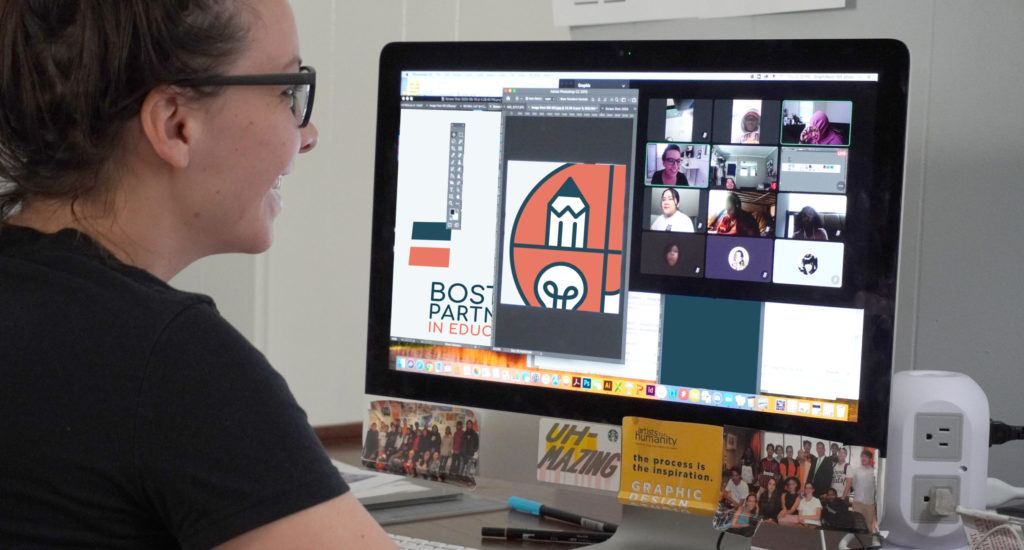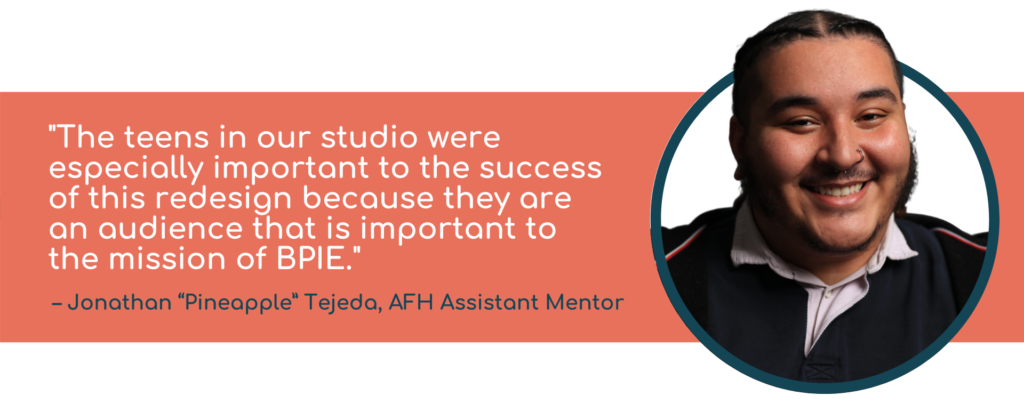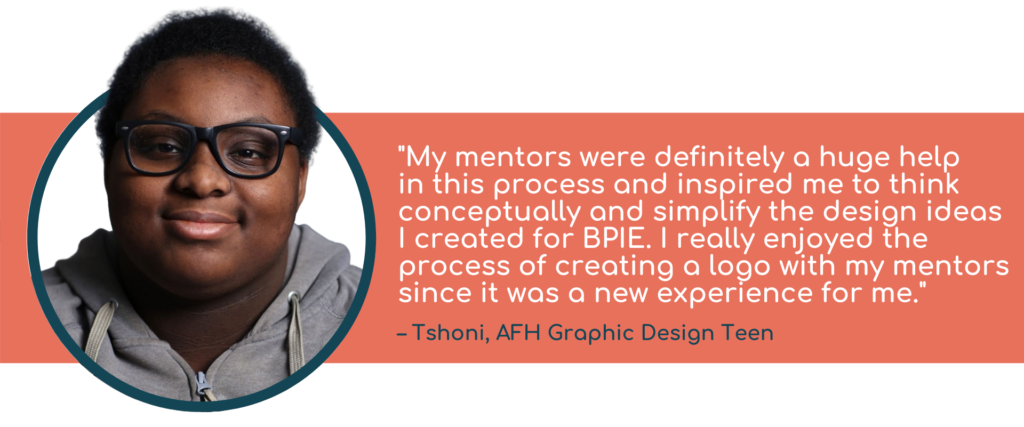
The Challenge
In late 2019, Boston Partners in Education began preparing for a full-scale rebrand as part of the organization’s latest strategic plan to build awareness of our mentoring programs. Our logo – then over 30 years old – no longer fully represented our core values. Rebranding the organization would provide an opportunity to further differentiate BPIE from our fellow nonprofits in the city, while also creating an identity that would better resonate with our volunteers and students.
We needed to build a brand that maintained our academic foundation but also acknowledged our role as social-emotional supporters in the classroom. We refer to our volunteers as mentors because they provide so much more than academic support – they motivate, build confidence, and promote trust. And to pull it all together, we wanted our brand to reference the strength of the Boston community. A few months later, the COVID-19 pandemic struck. The immediate effect on our programs underscored the need for a more accurate brand and mission.
It was important to us that our new brand reflected the students we serve. To ensure their voices were heard in this decision, we decided to partner with Artists For Humanity (AFH), a nonprofit in Boston that employs student artists from the Boston Public Schools and pairs them with mentors on design projects. For many years, students at Artists For Humanity have been matched with mentors from BPIE. As we challenged AFH to help define our identity, this personal connection helped transform the project from student-focused to student-powered.

The Process
For projects like the Boston Partners in Education rebrand, young designers at Artists For Humanity are fully immersed in the design process from inception to completion. With support from professional design mentors, AFH students create and present mood boards, and help develop concepts into fully-realized designs.
During our kickoff meeting, we joined the AFH team on-site and were quickly impressed by the student-to-adult ratio at the conference table. As we discussed our hopes for a new logo, seven student/mentor pairs came prepared with detailed notes and questions about BPIE. Kelsey Arbona, AFH Design Director, ensured that all students had time to speak and share their initial ideas. It was clear that AFH not only supported students but valued their input.
At our next meeting, the student artists shared their mood boards – a collection of imagery, feelings, and values they curated based on the vision we shared for our theoretical new brand. Together, we dissected these mood boards, identifying the ideas we felt best represented Boston Partners in Education. From there, it was time to begin the sketching phase. With guidance from their mentors, AFH student artists developed their own visions for our brand and worked separately to design concepts they would later pitch to BPIE.
Due to the pandemic, our on-site meetings transitioned to months of remote planning. Together, we reviewed and refined these concepts until four were chosen for the final section process. Students like Tshoni – a teen designer who contributed to BPIE’s new look – continued to collaborate with mentors over Zoom to adjust final details, such as colors and fonts.

A New Era for BPIE
In April 2021, we were proud to unveil our new logo – a circular design with four quadrants and four unique icons. Singularly, each corner of our logo represents a specific organizational value, but together the circle makes up our full mission. Just like the schools we support, our new logo relies on many pieces of a puzzle to become whole. Each quadrant working with the others makes up a stronger, more unified, and wholesome approach to our work.
As our logo’s fourth quadrant illustrates, part of BPIE’s mission is to connect the city to the classroom. Collaborating with Artists For Humanity gave us the opportunity to continue to be a bridge, honor the cycle of support, and promote student growth while refining our own identity.
“It has been a pleasure working on this project since BPIE and AFH have so much in common,” said Kelsey Arbora, AFH Design Director. “Both organizations support our community, believe in the importance of youth development, and utilize mentorship models.”
We’re proud to know that we’re a mentoring organization whose identity has been built through mentorship. As we look to the future, we’ll have our students and their mentors to thank for the vision.
